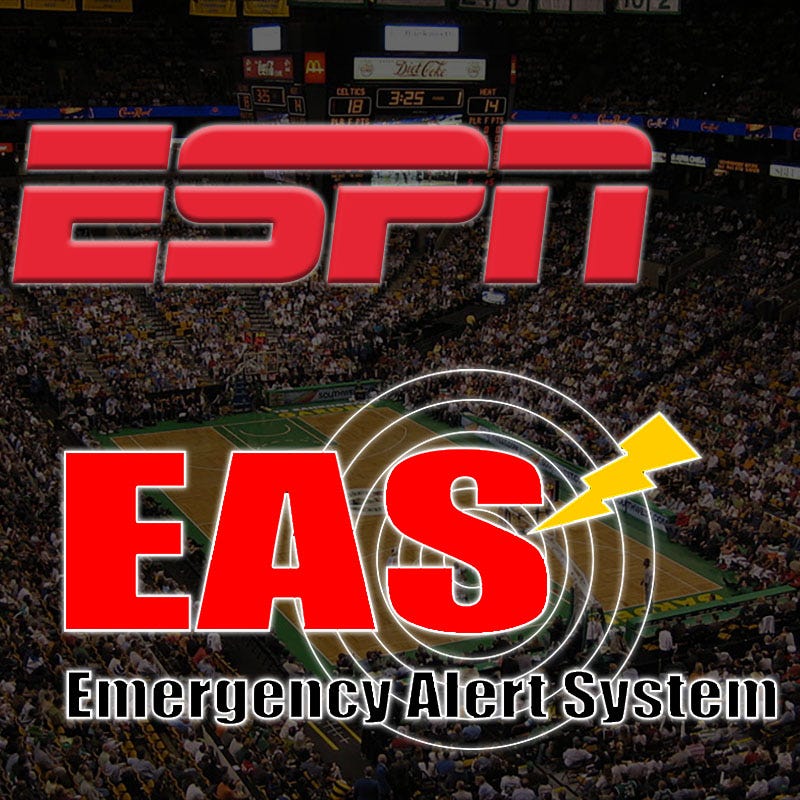ESPN dinged the max for EAS tones in NBA promo
FCC Enforcement Chief: "Transmitting EAS Tones in the absence of an actual emergency is not a game...”
As reported by the FCC, Disney-owned sports network ESPN was issued a Notice of Apparent Liability (NAL) from the Federal Communications Commission for $146,976, the statutory maximum, for airing tones similar to those used by the Emergency Alert System (EAS) when there was not an emergency.
The tones were used for a spot that promoted the 2023-2024 NBA basketball coverage on the network. In response to an FCC Letter of Inquiry, the network admitted that the spot was carried six times across two of their networks, ESPN and ESPN2.
In a statement by Loyann A. Egal, Chief of the FCC’s Enforcement Bureau, “These types of violations can raise substantial public safety concerns by causing confusion and in some cases interfering with legitimate emergency uses. Today’s proposed fine reflects the FCC’s commitment to keep the lines clear when it comes to the proper use of tools broadcasters are entrusted with to assist the public during an emergency.”
Section 11.45 of the FCC Rules prohibits the transmission of the EAS attention signal or FSK datastream (the “duck farts”) for any circumstance other than a national, state or local emergency, tests or as part of public service announcements intended to raise awareness of the EAS (you should not use the FSK code from a real alert).
The FCC takes EAS very seriously. In 2023, the Fox television network was issued an NAL for $504,000 for airing false EAS tones to promote the NFL.
REC agrees with the Chief of EB. EAS tones are not a joke nor a game. They are a serious part of our communications infrastructure and the use of tones at those frequencies must be restricted to the appropriate uses indicated above. This goes for on the spot coverage, EAS tones playing in the background, radio dramas, promotions or other methods. Stations that accidently allow the EAS tones to air are required to send an email to fccops@fcc.gov to report details of the incident. Stations that misuse the tones are subject to the same forfeitures up to the statutory maximum above. Just don’t do it.
LPFM stations are only required to decode incoming EAS alerts. EAS decoders must be lab certified. Stations are required to forward national emergencies (type code EAN), the National Periodic Test (NPT), Required Monthly Tests (RMT) and any other type code as required by your State Emergency Communications Coordinator (SECC).
Like with any NAL, ESPN has 30 days to fight it or to pay the fine.


